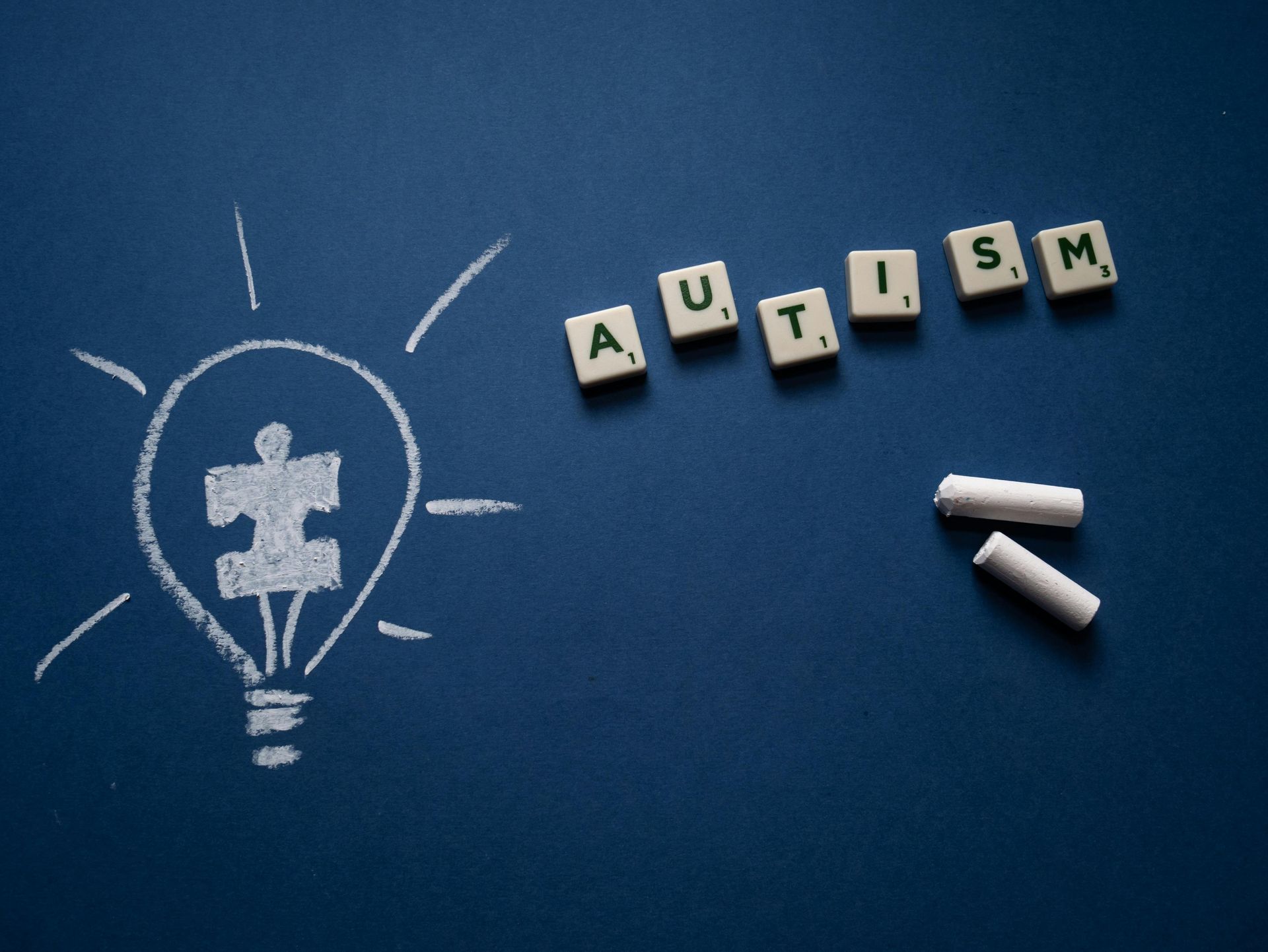Autism and
Education
Many autistic children face significant stress in school. While some cope well, for others the system is not ideal, and can lead to various challenges.
Autistic Classroom Struggles
Traditional school environments are typically designed for neurotypical students. This often means that the sensory, social, and cognitive needs of autistic children are overlooked. Teachers, working under significant pressure, may not always have the time or resources to meet these individual needs consistently.
As a result, many autistic children face significant stress in school. While some cope well, for others the system is not ideal, and can lead to various challenges.

Supporting your Child
Autistic Children in School
There are numerous reasons why autistic children may face challenges in school. Here are some key points to consider:
- Autistic children process information differently due to the unique way their brains are wired. This affects how they perceive sensory inputs (like sounds, visuals, and touch), how they communicate, and their ability to form social connections. Many autistic children have a strong desire for predictability, but often struggle with understanding what to expect. They also tend to develop intense, focused interests.
- Autistic children can thrive in school settings. The structure and routine may be comforting, providing opportunities to explore special interests. Some children excel academically, and with the right support, may enjoy positive relationships with peers and teachers who understand their needs.
Schedule your free consultation today.
Take the first step toward clarity and empowerment. Schedule your free pre-assessment call and lets work toward a focused and fulfilling life
How can challenges in school present?
Social and Emotional Challenges
Struggles with forming and maintaining friendships: Autistic children often face challenges in understanding social cues or may feel different from their peers.
Higher likelihood of identifying as LGBTQIA+: Autistic individuals are more likely to identify as gay or with a gender different from the one they were assigned at birth
Being prone to bullying: Differences in communication style, interests, appearance, or gender identity make autistic children more vulnerable to being targeted.
Behaviour misinterpreted as defiance: Stress can manifest in behaviours that appear oppositional, but often these are just signs of overwhelm.
Masking: Some children hide their true feelings or behaviours to avoid drawing attention, which can lead to exhaustion and stress.
"Coke bottle effect" at home:
After a day of managing stress at school, children often feel safe at home to release pent-up frustrations, sometimes leading to outbursts.
Exhaustion from trying to fit in: The energy spent trying to manage socially and academically can be draining, even for children who appear to be coping well.


Autistic School Challenges
Academic and Functional Challenges
Falling behind academically: Autism-related difficulties, ADHD, dyslexia, or slow information processing can contribute to academic struggles.
Difficulties in meeting basic needs: Tasks like eating, drinking, or using the restroom can be overwhelming in a busy school setting.
Negative consequences for challenging behaviours: Misunderstood behaviours can lead to punishments like detention, increasing stress and creating a cycle of difficulty.
Limited energy for homework: Many children find it hard to complete homework at home due to focus and executive functioning challenges.
School Avoidance:
When school feels overwhelming, some children may develop school refusal or avoidance.
How a Diagnosis can help autistic students
Support Autistic students needs
An autism diagnosis is essential for teachers to better understand and support the autistic student's needs. Schools can make reasonable adjustments which are designed to provide accommodations such as extended test times, sensory-friendly environments, or specialised teaching methods. Without a diagnosis, schools may misinterpret an autistic student’s behaviour as disruptive, inattentive, or unmotivated. However, with the knowledge that these behaviours may stem from sensory overload, difficulties with communication, or struggles with executive functioning, schools can adapt their teaching approaches. This allows autistic students to thrive in environments that may otherwise be overwhelming or unsupportive.





